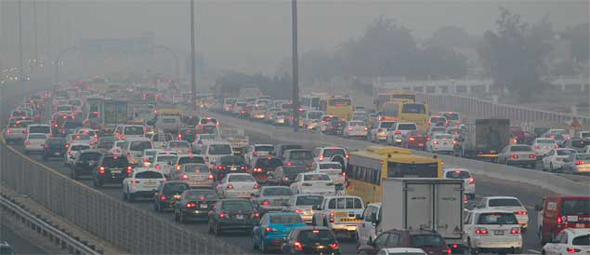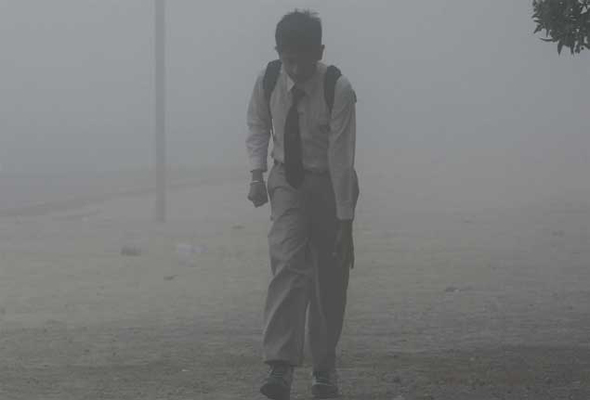
Dubai, Jan 23: Thick fog covered most parts of Dubai and neighbouring emirates on Tuesday morning as motorists reported near-zero visibility.
The fog, which continued well into the day, caused minor accidents though no major ones were reported. It also caused traffic snarls on some roads.
“There were no serious accidents which required any intervention from the Roads and Transport Authority (RTA). We have been in constant touch with Dubai Police and radio stations to keep people updated and provide them with latest information about slow-moving traffic in certain areas,” RTA Licensing Department CEO Ahmed Hashim Bahrozyan said.
He called on motorists to not use hazard lights during foggy conditions as it could lead to confusion and accidents.
“It is one of the most important lessons taught at a driving school here in Dubai. Motorists should not use hazard lights when driving in foggy conditions unless they spot a hazard. The indicator lights become inactive once the motorist activates the hazard light, causing confusion and an increased chance of accidents during low-visibility conditions,” he said.
Dubai Police confirmed there were a host of minor accidents, though no major tangles.
According to the National Center of Meteorology and Seismology (NCMS) in Abu Dhabi, the sky will continue to remain partly cloudy today and tomorrow, with the relative humidity expected to increase during night and early morning, creating foggy conditions over some areas.
Sadia Hashim, who drives to Dubai to work from Abu Dhabi everyday, said: “It was a difficult drive because the fog was extremely thick in Ghantoot, just before crossing into Dubai. It is unusual because the fog continued well into the morning hours, even after 9am.”
Meanwhile, Abu Dhabi Police have begun an intensive campaign to urge safe driving practices in fog.
Furthermore, the Security Media Department, at the General Secretariat of the Office of the Deputy prime Minister and Minister of Interior launched intensive radio awareness programmes directed at motorists, where local radio stations will report conditions and instructions for coping with them.
Such instructions included use of fog lights, reduction of speed, avoidance of overtaking, maintaining a safe distance between vehicles, and stopping vehicles completely off the road, in extreme cases.
The Abu Dhabi Police Traffic and Patrols Directorate is distributing awareness booklets and brochures with similar messages.








Comments
Add new comment